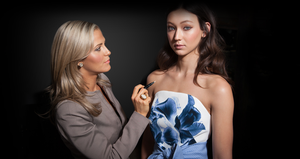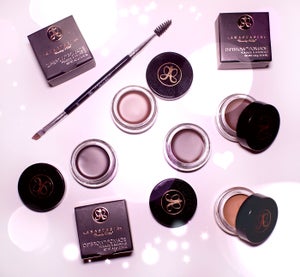You've heard it all when it comes to your skin, from injecting snake venom into it, to smearing caviar onto it, nothing is off limits when it comes to our skin. But what is right and what is complete bull...?
Without further a do, here are the biggest skin myths exposed:
1. My Skin is Sensitive
Many people automatically place their skin in the 'sensitive' category because of redness and pigmentation. Skin care expert Jocelyn Petroni from The Facial room claims that the majority of people don't have sensitive skin at all. They either misdiagnose it themselves or have been misdiagnosed by counter staff that have not been properly trained in skincare. Most people aren't born with sensitive skin, their skin is more likely sensitised, a temporary condition cause by the body's reaction to stress or misuse of products. Sensitised skin is a condition that can be treated with the right attention.
2. Naturals products are better for my skin

This is not necessarily the case. Certain natural ingredients such as Vitamin C have to be tweaked to be able to fully penetrate the skin and take effect. According to Natalie Aboucher of Privee Cosmetic Clinic, some natural ingredients also need to be properly reserved so they don't go off, because if they aren't, and they do go off, they could end up damaging your skin more.
3. Products lose their effect on the skin after time because my skin gets used to the product
Dr Spiller Skincare Expert Sue Dann says that skin doesn't get used to anything, and that most people don't treat their skin for the effect of their lifestyle. It's not that the products have stopped working on the skin, it's more that sometimes a moisturiser alone can't balance out the effects of bad diet, stress and excess external exposure. Be proactive - if your skin is dull or acting up, use extra products such as masks or serums in response.
4. You don't get Acne once you're in your 30's
Anyone can get acne at any age. Dermatologist and Author of Beautiful Skin, David Bank says this can be due to over active hormones going into overdrive, stress, diet and nutrition, or lifestyle phases like pregnancy, post-natal or menopause. To try and prevent breakouts, exercise regularly, focus on a healthy diet of fruits, vegetables, high-fibre carbs and lean protein. When you see a blemish try, salicylic acid to help clear the pores and benzoyl peroxide to kill bacteria on the spot to minimise the lifespan.
 5. If I've used Botox once, I'm going to have to use it forever
5. If I've used Botox once, I'm going to have to use it forever

If you've used Botox a few times and think it's something you're going to have to maintain for the rest of your life, you are wrong. Studies have proven that those who use Botox a few times and then stop will still have more youthful looking skin than those that never used it. Steven Victor M.D. and Director of Victor Dermatology and Rejuvenation NYC says that Botox can have a cumulative effect, and over time if you aren't making a repetitive muscle movement, your wrinkles will lessen, and you can completely stop injections afterwards.
6. Dry skin needs flooding with moisturiser
All skin needs hydrating, but moisture needs to be delivered to the skin in the right way. Skin is a waterproof organ, so water-based moisturisers won't penetrate it. Adrienne Denese M.D. and director of the Eponymous Skincare line agrees saying oil-based moisturisers are better formulated to get deeper into your skin. If you want to find out if your moisturiser is water or oil based, put a little bit on your finger and run it under the tap. If your moisturiser melts away it is water based, if it holds its shape, it is oil based.
It is important to look after your skin, but don't believe everything they tell you!

Related Articles






